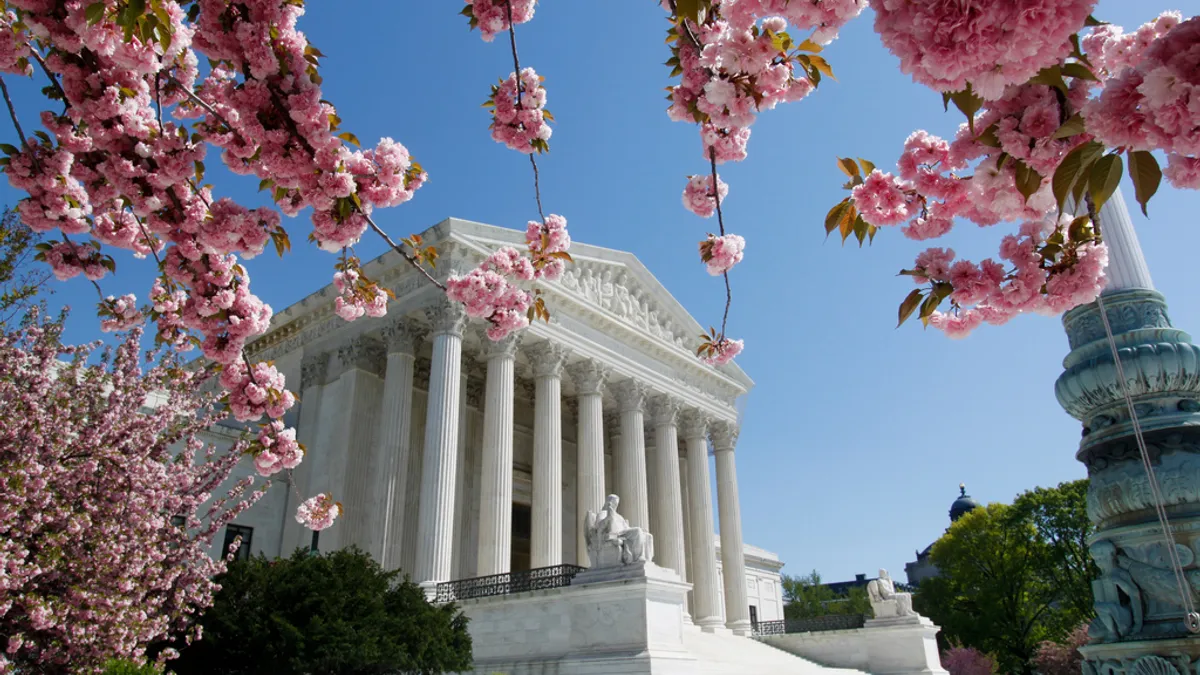Dive Brief:
-
The Supreme Court instructed a lower court Monday to review a ruling by the U.S. Department of Labor to require overtime exemptions to salespeople at auto dealerships, ordering the department to explain its change to the longstanding policy.
-
In a case involving California auto dealership Encino Motorcars, the federal appeals court in San Francisco used a 2011 Labor Department ruling—which held that service advisers, who sell service and maintenance services, are not exempt from overtime pay the way salespeople who sell cars are—to overturn a federal district court ruling siding with the dealership.
-
The 6-2 Supreme Court decision hands the case back to the federal appeals court with instructions to decide the case based on legislation and not the agency’s 2011 interpretation.
Dive Insight:
The 2011 twist to the longstanding treatment of overtime pay for service advisers working at auto dealerships was probably destined to be tested this way. The law under review was originally (in 1970) interpreted by the Labor Department to exempt service advisers from the overtime pay rules—meaning they were eligible for overtime pay. After some tussling in the courts, the department changed its rules to include both salespeople and service advisers at auto dealerships as exempt from getting overtime pay.
By the time labor regulators returned their rules back to the original 1970 interpretation, the exemption had become longstanding policy, and that’s what’s bothering the high court.
The two dissenters— Justice Clarence Thomas and Justice Samuel Alito—weren’t in favor of the exemption; rather, Thomas wrote that the Court should have decided the case against overtime pay, rather than sending it back to the appeals court.
While this is a small aspect of labor law and regulation, the tension around the Labor Department’s shift reflects the Obama Administration’s efforts to improve an income disparity that is widely seen has a pressure point for retailers, which are struggling to demand prices that would allow for healthy profits and growth.
The problem of stagnant wages is widely seen as a problem in the U.S. economy, and several experts, in speaking to Retail Dive on a variety of topics, consistently point to the routing of the middle class as a key issue for retailers. Consumers remain somewhat tetchy about spending despite a rebounding economy, which has seen more or less steady upticks in employment and other measures for several quarters now.
Until the economy bounce reaches lower income consumers, the lingering trauma from the Great Recession may not dissipate enough to please retailers, at least those catering to lower- and middle-income shoppers.















